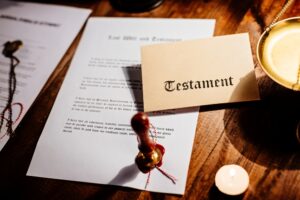When you create an estate plan, you’re probably starting with a frame of you and your beneficiaries as the core people involved. However, this is not the full scope of everyone involved in your estate planning process. 
There are four fiduciaries responsible with the entire estate planning process and they are known as an agent, an executor, a trustee, and a health care representative. An agent under a power of attorney makes financial decisions on behalf of the person who created this document. This is usually a spouse or child but can be different persons based on whether or not there is a business at stake.
A trustee’s primary role is to invest trust assets and to make distributions in accordance with the terms of the trust document. Usually a friend or family member is selected to serve in this role. A health care representative is the appointed legal agent to make medical decisions if the principal is unable to do so. These may be end of life decisions but it is not limited to end of life decisions.
All four of these people can play an important role in the estate planning process. They might play various roles in your estate plan at different times but all four of them should be considered important components of your overall planning strategy. Schedule a time to meet with an experienced estate planning lawyer to talk about your next steps.



















